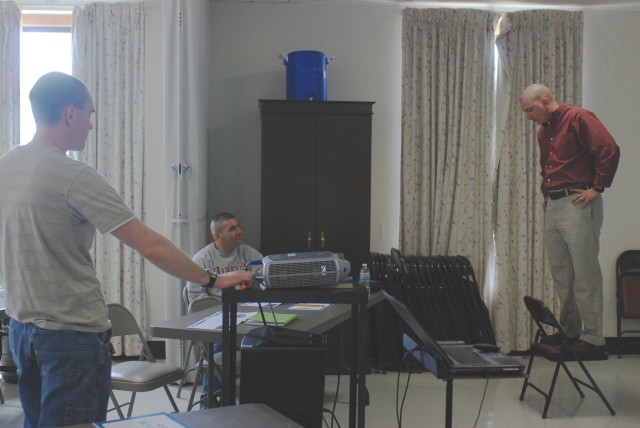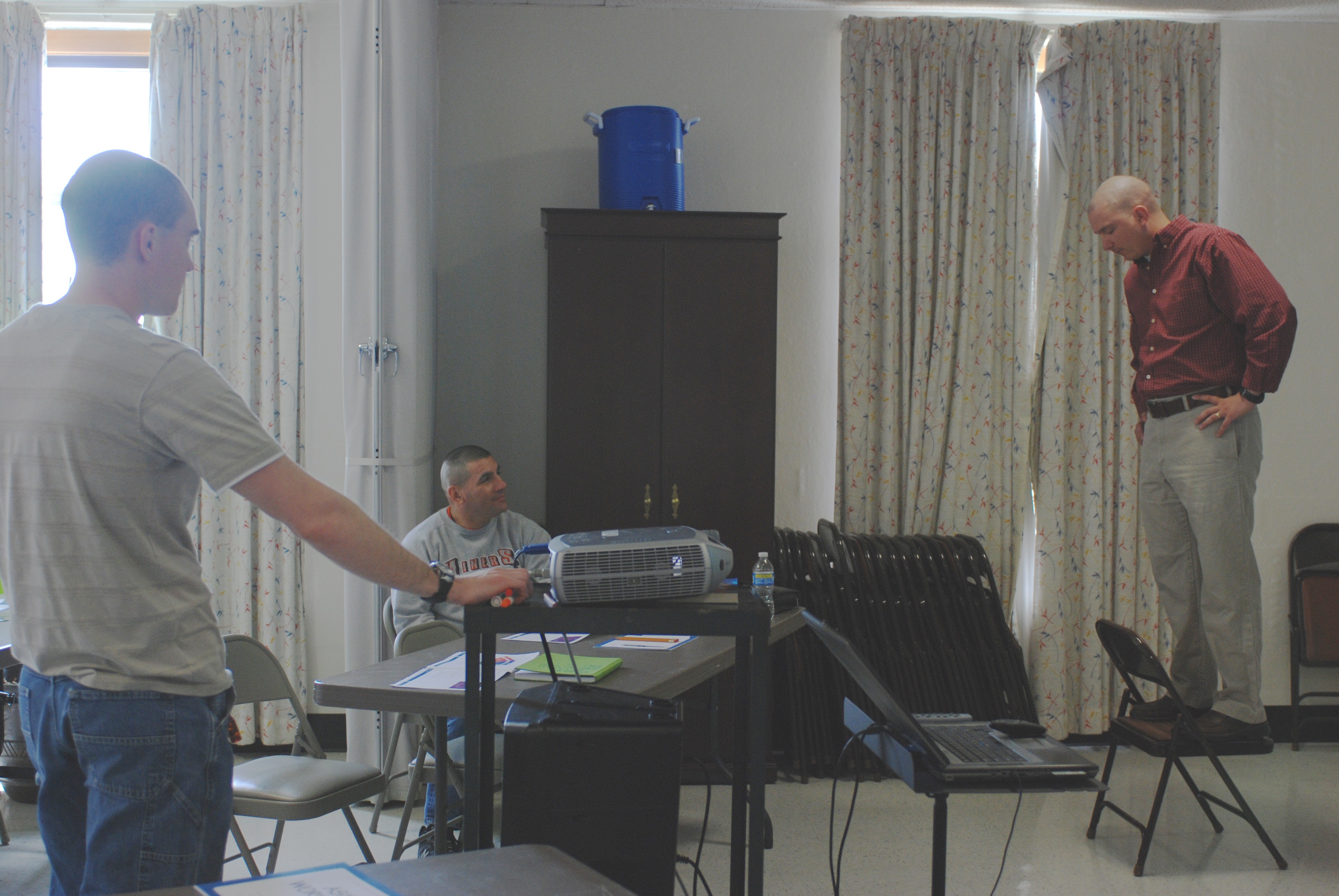FORT SILL, Okla. -- If the Soldiers in the chapel looked relaxed, wearing civilian attire, with coffee and other refreshments in the back, the scene belied their somber expressions. Threatening to leap to his death, the chaplain of the 168th Brigade Support Battalion, Chap. (Capt.) Jeremy Plevka, hesitated expectantly. Someone had to say something, and say it quickly.
Time out.
All eyes turned toward Chap. (Maj.) Milton Johnson, the 214th Fires Brigade chaplain, as he explained some of the finer points of connecting with individuals in crisis.
Game on.
The Assisted Suicide Intervention Skills Training, or ASIST program, is one of the best methods for helping Soldiers understand the signs and symptoms of potentially suicidal individuals, believes Johnson.
"Most of the time, these individuals want to live," he said.
Part of a curriculum to help leaders and first-line supervisors identify and effectively reach out to suicidal Soldiers, the exercise emphasized the importance of a caring approach when dealing with suicidal individuals.
With suicide rates among Soldiers on the rise, programs are being implemented to address the stresses that accompany military service. As a non-military, non faith-based course, ASIST takes a different approach than other resources currently instituted among the brigade's corps of chaplains, said Johnson, but it is the most effective he has seen.
"It's the best because it deals with all three phases of the suicide process. It addresses prevention, intervention, and post-vention," he said.
Previously utilized by the Army, then removed, the program is back in the curriculum. Each battalion in the 214th FB sent representatives to the training to combat the threat of suicide among its personnel.
While modern Soldiers have resources available to help them deal with these issues, the very nature of stress and depression can often shut down an individual's ability to reach out for those services. Furthermore, prevailing attitudes within the military community can also play a role, Johnson believes.
"It's important for people to get help as soon as they feel stressful. Now, the problem with the Army culture is that sometimes when a person cries out for help, we don't always allow them to get the help that is within their reach," he continued. "Or, we ostracize them for taking advantage of the help within their reach."
Part of helping individuals to utilize available resources is simply to listen. The attempt at understanding is usually enough to prompt the kind of dialogue encouraged by the ASIST program. Helping people who are suicidal reconnect with their desire to live often creates the opportunity to get them professional help, said Johnson, which is exactly why first-line supervisors - and even families - are ideal candidates for such a course.
Certain individuals are selected to take a course which certifies them to teach the material to others. But, that training is very expensive and often requires those Soldiers to apply for temporary duty status. However, through a contract with the ASIST program, that training has recently been scheduled to take place at Fort Sill, saving money for units while simultaneously facilitating maximum participation.
During a brief introduction to the program's core principles, Chap. (Capt.) Mark A. McCorkle, the 1st Battalion, 14th Field Artillery Regiment chaplain, saw the benefits of diversifying the Army's approach to suicide prevention. His hopes for the ASIST training were reaffirmed only hours later when he used those principles to successfully resolve a potential suicide situation. Now, he is anxious to receive the full training.
"I'm looking forward to the interaction. I hear it's intense," said McCorkle.
The sobering nature of the issue emphasizes the necessity of programs such as ASIST and highlights the need for Soldiers to be prepared in the battle against suicide.
"This could be you, tomorrow," said Johnson.


Social Sharing